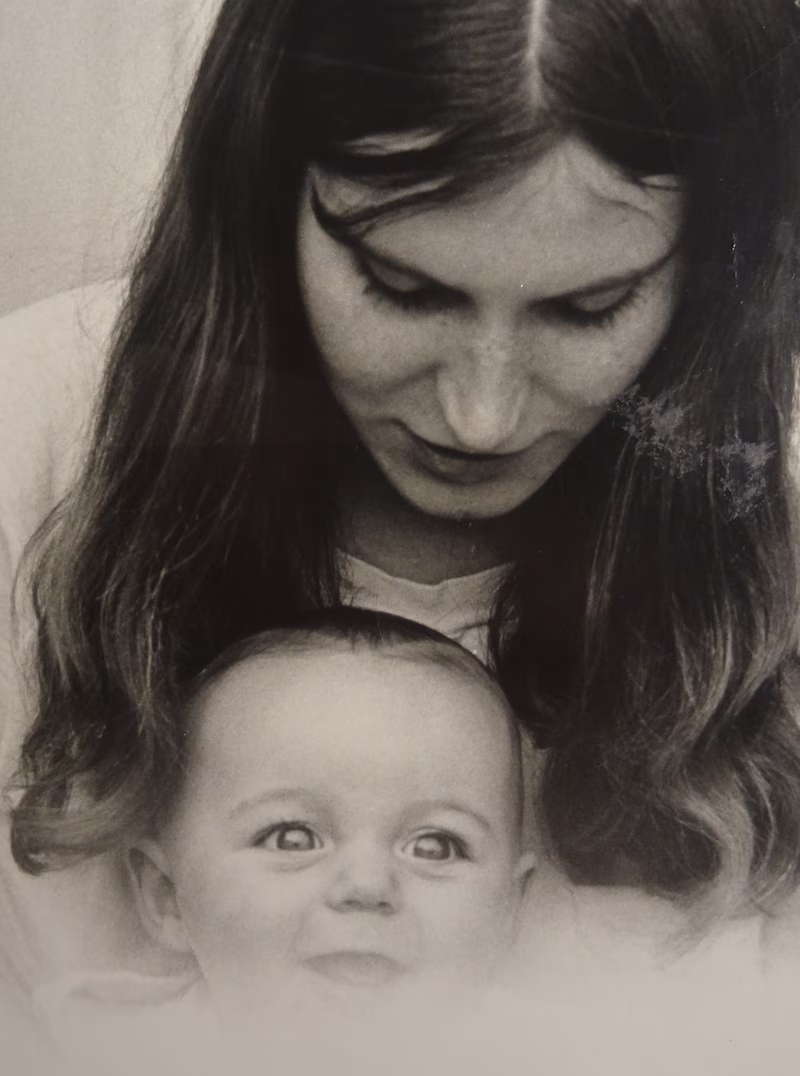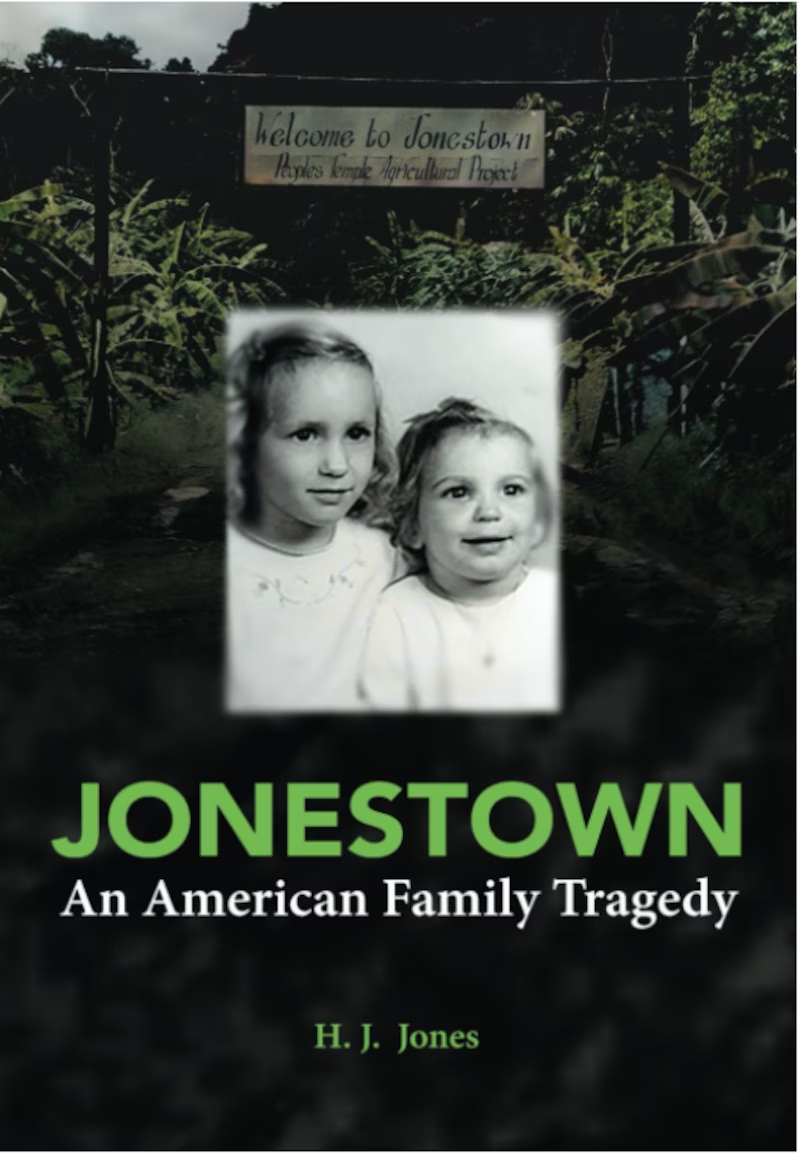(Editor’s note: This article is republished courtesy of MLive.com. The original article appears here.)

GRAND RAPIDS, MI — When 918 lives ended in a mass suicide at Jonestown in the Guyanese jungle 45 years ago, Bay City native Shirlee A. Fields was not the lone Michigander among them.
In all, eight people born in the Great Lakes State died in Guyana on Nov. 18, 1978, at the behest of the Rev. Jim Jones and his Peoples Temple.
Among them also was 29-year-old Mary B. Wotherspoon, who perished along with her 8-year-old daughter Mary Margaret Wotherspoon and husband Peter A. Wotherspoon. Born in Grand Rapids in October 1949, she suffered the death of her father from cancer at age 4 and was raised in a strict Calvinist home.
In the memoir “Jonestown: An American Family Tragedy,” Michigan author H.J. Jones recounts how Wotherspoon, her younger sister, was searching for a greater purpose, fostering a deep yen to improve the world for its most oppressed and marginalized inhabitants.
Galvanized by the turbulence of the Vietnam War and the Civil Rights Movement of the late 1960s, Wotherspoon moved from Michigan to California and joined Peoples Temple.
The three-member Wotherspoon family entered Guyana in July 1977, just four days before Fields’ family of four arrived. Neither family would ever return to the U.S. alive.
In prose that’s equal parts harrowing and heartbreaking, Jones — no relation to Jim Jones — describes how her sister was devoted to the group’s community outreach. Yet when they arrived in Jonestown, Wotherspoon and her family were subjected to or witnessed abuse and mistreatment, her sister wrote.
As with so many others, they were unable to escape the thrall of the group’s increasingly unhinged leader-turned-tyrant, Jones wrote.
With a confessional tone, Jones writes how her sister’s death affected her and her family and the ensuing feeling of powerlessness. By the end, she writes with a philosophical assessment, urging compassion rather than rash judgments.
 The 286-page book was published this fall by Mission Point Press and is also available on Amazon in both Kindle and paperback form. Jones spoke with MLive regarding the book, what she discovered in her research, and what she hopes the public learns from the tragedy that befell her sister and continues to reverberate through history.
The 286-page book was published this fall by Mission Point Press and is also available on Amazon in both Kindle and paperback form. Jones spoke with MLive regarding the book, what she discovered in her research, and what she hopes the public learns from the tragedy that befell her sister and continues to reverberate through history.
Question: How did the idea of writing your book come about?
Answer: Thank you for asking. I got the idea after a friend – a published writer and teacher – suggested that I write something about my sister’s death in Jonestown. Although by nature a writer myself, I had never considered writing a book about anything, much less such a painful event. However, my sister’s story quickly grew into a book that covered generations, continents, and far more history than I ever anticipated.
Q: Once you began, how long did it take for you to complete it?
A: The book took over three years of almost daily research and writing. During prolonged isolation in the early days of the COVID-19 pandemic, I had the time. Then three years had somehow slipped by, almost unnoticed.
Q: Did you gain an understanding of what led so many people like your sister, Mary, and fellow Michigander Shirlee Fields to join Peoples Temple?
A: I cannot speak for others who died there, but aided by hindsight, I grew to better understand how someone like Jim Jones and Peoples Temple could have appealed to my sister. Mary had a heart for others and for important causes. Before Peoples Temple became infamous, it had focused on improving the surrounding community and serving marginalized populations. Mary would have fit right in. And after the early death of our father, I suspect Jim Jones may have served as father figure for her, too.
Q: What did you hope to learn about your sister, Peoples Temple, and Jonestown when beginning the process? Did you come away feeling you attained that goal, or something different?
A: When I started writing, I wanted to know more about all of it: my sister’s life in the Temple, the church itself, and of course, life – and death – in Jonestown. I believe that I achieved these goals, plus I also learned about who my sister was outside of our family and home.
Q: How did your perspective of Peoples Temple change from when you started the book?
A: I gained far more sympathy and admiration for the talented, idealistic, and hard-working members of Peoples Temple.
Q: How does a loved one of someone who died at Jonestown make sense of what occurred there? Is there any sense to make?
A: There is no way to fully make sense of how a loved one could have died in Jonestown, but I would invite others to dig deeper into the tragedy, and can only hope that my book will help with that.
Q: What do you hope the public takes away from reading your book?
A: I invite readers to be curious about historical events such as Jonestown, to get the facts behind the headlines, and to consider how and why they came about. To dig deeper.
Q: What misconceptions regarding Peoples Temple members like your sister would you like corrected? Were there any misconceptions you had before beginning your research?
A: There are many misconceptions regarding Peoples Temple members like my sister, Mary. I hope that readers realize the basic humanity and goodness of those who died, and why they died. As well as what it was like for them to be led so far astray, to suffer so greatly for their misplaced trust. One of the most important misconceptions that I had at first was about the power Jim Jones held over his followers. I had mistakenly believed that my sister could have left Peoples Temple if she had wanted to. I thought she had more choices than she did. Than all of them did.
Q: Toward the end of your book, you mention being told by Jim Jones’ son Stephan G. Jones that “Forgiveness is not a useful concept. Compassion is.” How did this sentiment affect your perspective?
A: This profound insight helped me to understand and deal with my anger – anger at Jim Jones and anger at all of his enablers. But more than that, I thought of it as a way of life. How much better the world would be if we – all of us – exchanged our bitterness for understanding – for compassion? We can all be led astray in ways we may not even be aware of.
Q: Why is it important to continue sharing the stories of those who joined Peoples Temple and died at Jonestown? What can we as a culture still learn from the Jonestown tragedy?
A: It’s important to continue sharing the stories of Peoples Temple. The saying that “history repeats itself” still applies. Even today, demagogues with many followers appeal to humanity’s worst instincts, threatening to derail our fragile democracy.
Q: How do you feel about or assess your sister’s decision to join Peoples Temple and what ultimately befell her? Do you feel differently from when you initially learned of her death, or since you began writing her story?
A: After more than three years of research and writing, I now better understand how Jim Jones appealed to my sister, and equally important, how Peoples Temple provided crucial support for her at a vulnerable time in her life.
Q: What would you like the public to understand about your sister and the others who died at Jonestown?
A: I would like the public to understand that many, if not most, who were murdered in Jonestown were intelligent, idealistic people who wanted to prove to the world that there is a better way. A way of sharing our burdens and caring for one another just as Jesus once said, “Love one another as I have loved you.”
(Cole Waterman is a Michigan-based crime reporter with a long-held interest in Peoples Temple and Jonestown who has submitted numerous primary source transcripts from the FBI’s FOIA files to the site beginning in the fall of 2023. He can be reached at Cole_Waterman@mlive.com.)